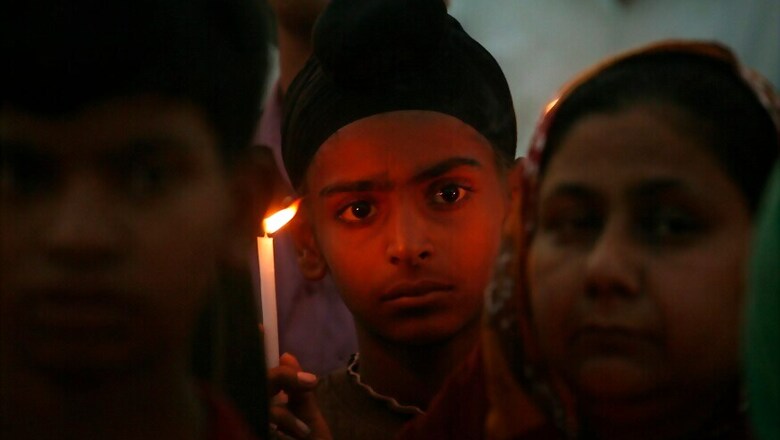
views
Even 36 years after the pogrom that destroyed their lives, 95% of the survivors of the 1984 anti-Sikh carnage don't have enough money to live on, a survey conducted by the Delhi Minorities Commission has found. The survey has found that most of the families which suffered the horrors of communal violence in '84 have still not been able to return to even their pre-riots economic status. The survey has also found that many of these families are so poor that they haven't been able to afford education for their children.
The report titled, ‘Socio-Economic & Educational Status of Survivors of the 1984 anti-Sikh riots in Delhi, which was released by the panel on Thursday, sampled 3668 families from eight locations in Delhi. Those areas are-- Tilak Vihar (Widows Colony), Raja Garden, Punjabi Bagh, Chander Vihar, Hari Nagar, Rohini, Khayala and Vishnu Garden.
The report found that children of most victims could not continue their education and ended up as low-paid and daily-wage earners, unqualified women were forced to find odd jobs to feed their families and these circumstances placed riot-affected families behind others and it will take many generations for these families to reclaim their position which they enjoyed before the cruel riots, the report stated.
The study highlighted three major challenges faced by these families—55 percent of them had a meagre family income, 36 percent of the respondents were struggling with the issue of unemployment and 14 percent of them did not have the ability to receive quality education.
“Riots adversely affected education of children in terms of quality and continuity. While children of 28 percent families could not receive quality education, 24 percent families discontinued their studies due to fear, children in 15 percent families were forced to discontinue studies and take up jobs after riots as earning money took precedence over education due to loss of the family income,” according to the report.
Of those interviewed for the survey, only 3% described the financial support offered by the government as effective. More than half of the respondents were found to be illiterates, while 28 percent had studied up to the primary level and 15 percent were educated up to secondary level. Only 3 percent of those surveyed had studied up to the higher secondary level and the share of graduates was just 1 percent.
An overwhelming 95% respondents informed that the income is not sufficient for their monthly family expenditure. The share of families with sufficient income was reported to be only 4%.
Anti-Sikh riots broke out in several parts of the country after the assassination of then Prime Minister Indira Gandhi on October 31, 1984 by her two bodyguards. According to the Ahuja Committee, cited by the minorities panel, 2733 Sikhs were killed in Delhi alone.
The access of riot-affected families to health insurance was also found to be extremely poor.
92 percent of families did not have any health insurance. Of the 8 percent families who had access to the facility, only 2 percent families had all its members covered.
Three-fourths of the total families surveyed by the panel were living in houses which are not reasonably spacious for all their family members and the houses of 42 percent are in dilapidated condition.

















Comments
0 comment